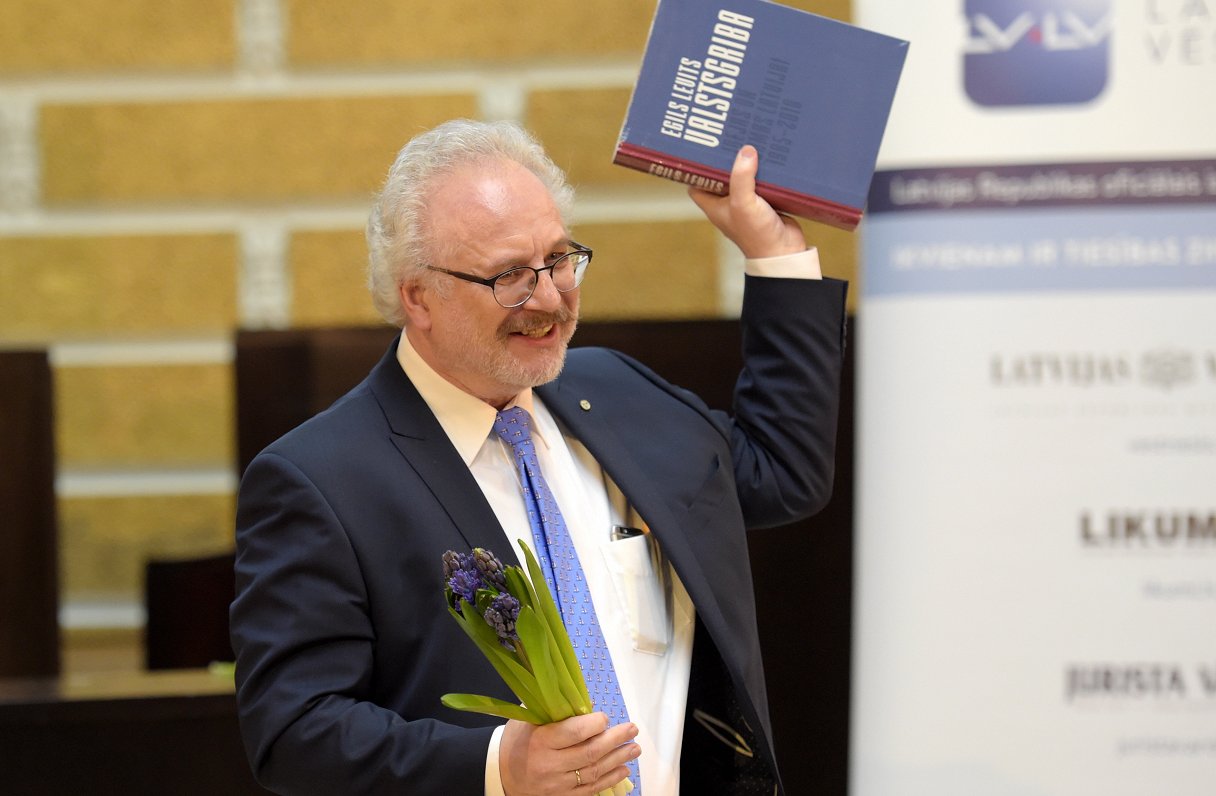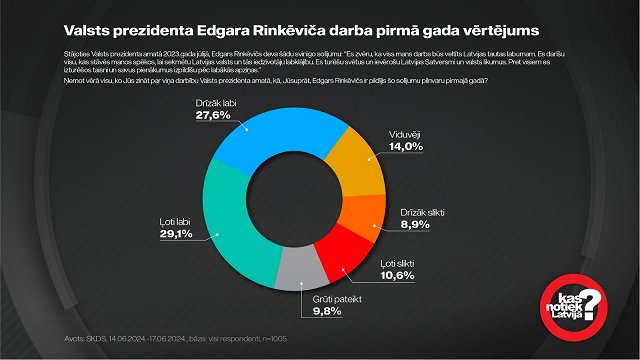The nomination was signed by National Alliance MPs Raivis Dzintars and Ināra Mūrniece, New Conservative Party MPs Juta Strīķe and Dagmāra Beitnere-Le Galla, Daniels Pavļuts and Vita Anda Tērauda from Development/For!, KPV LV deputees Artuss Kaimiņš and Aldis Blumbergs, as well as New Unity's Arvils Ašeradens and Ainars Latkovskis.
The registration of presidential candidates starts today, May 9, and Levits is the first officially nominated candidate.
If Saeima lawmakers vote as they have promised, Levits will receive at least 55 votes. The National Alliance, the New Conservative Party, Development/For! and New Unity plan to support Levits as the president. Several lawmakers of the KPV LV party – Kaimiņš, Ramona Petraviča, Blumbergs, Jānis Vitenbergs, Aivars Geidāns and Ivars Puga – also have voiced support to Levits.
At least 51 votes are needed to elect the president. This time the president will be elected in an open ballot.
The Saeima will elect the president at an extraordinary meeting on May 29.
Incumbent President Raimonds Vējonis said he would not run for a second term in office.
Levits is likely to face competition. As reported, the board of the Latvian Farmers’ Union, which is one of the partners in the Union of Greens and Farmers, has decided to nominate Ombudsman Juris Jansons for Latvia’s next president. KPV LV internal opposition also will discuss a possibility to nominate their own candidate for the president.
Levits was born 1955 in Rīga, but grew up in Germany and graduated in law and in political science from the University of Hamburg. He was adviser to the Latvian Parliament on questions of international law, constitutional law and legislative reform; Ambassador of the Republic of Latvia to Germany and Switzerland (1992-93), Austria, Switzerland and Hungary (1994-95); Vice Prime Minister and Minister for Justice, acting Minister for Foreign Affairs (1993-94); Conciliator at the Court of Conciliation and Arbitration within the OSCE (from 1997); member of the Permanent Court of Arbitration (from 2001); elected as judge at the European Court of Human Rights in 1995, re-elected in 1998 and 2001. He has been a judge at the Court of Justice since 11 May 2004.
He is a well-known legal expert who contributed to the declaration of renewed Latvian independence in 1990. He also drafted the controversial preamble to Latvia's Constitution, adopted in 2014, which says that Latvia's national identity includes "universal and Christian values," a bone of some contention for a secular constitution.






























